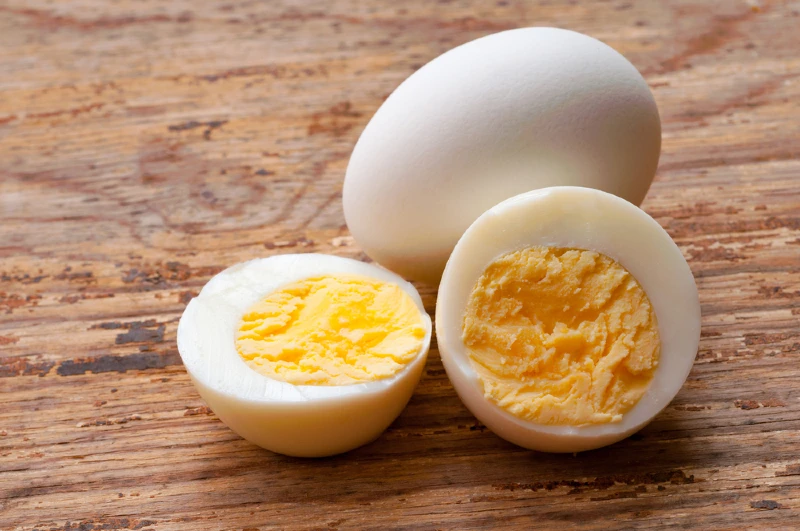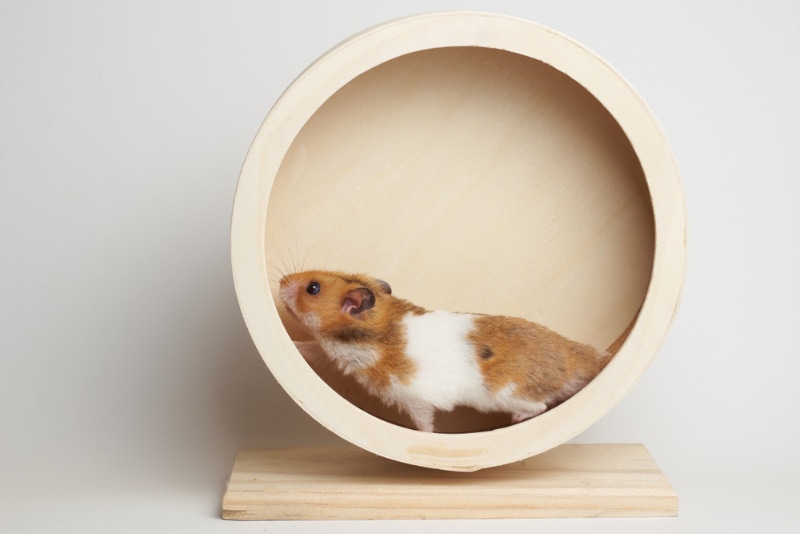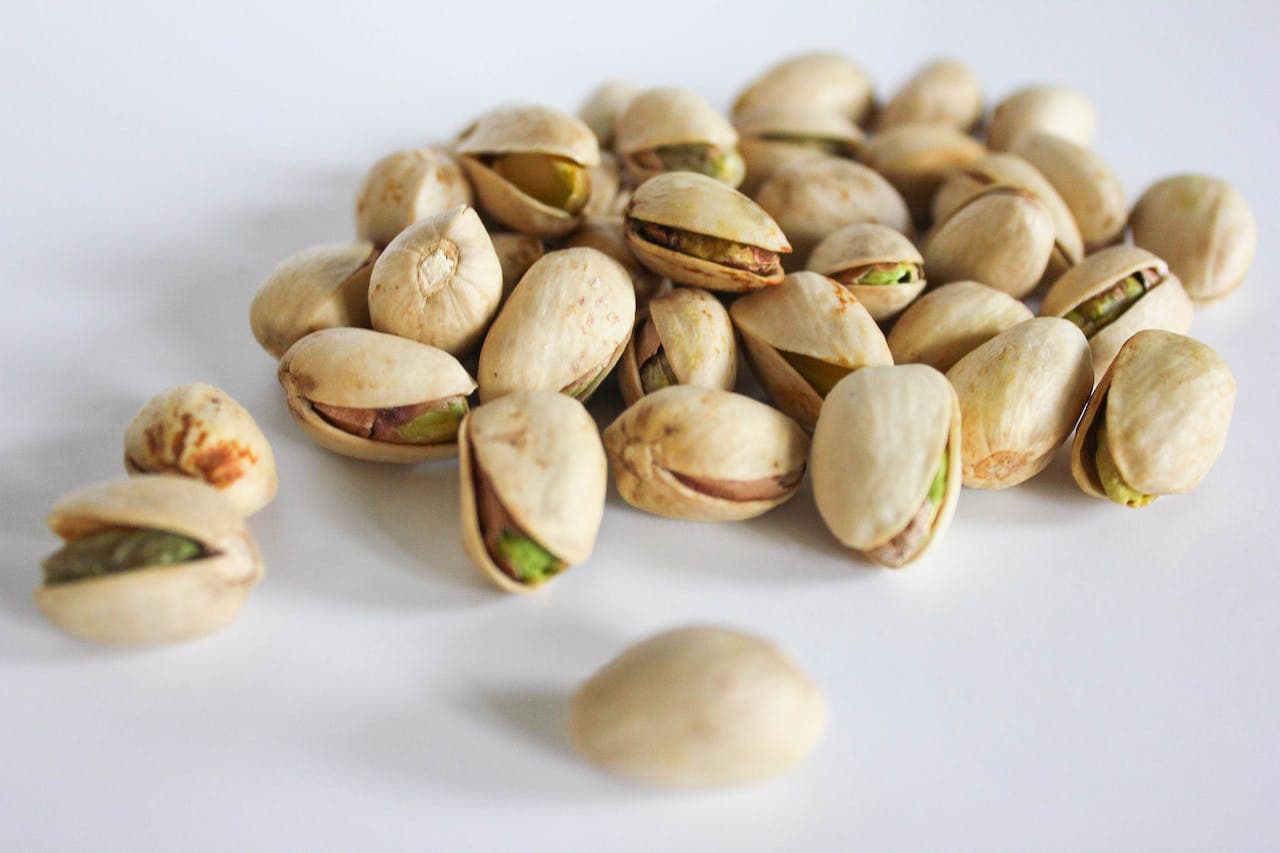Can Hamsters Eat Squash? Vet-Approved Nutrition Guide
By Grant Piper
Updated on

Click to Skip Ahead
Hamsters are adorable little friends that have a very broad appetite. Hamsters are omnivores that will eat a little bit of everything, from seeds to fruit to hay and more. But can hamsters eat squash? What kind of squash can hamsters eat?
Hamsters can eat all kinds of squash in moderation. Squash can be a nutritious and tasty snack for hamsters of all kinds as long as you feed it properly. This guide will explain everything you need to know about feeding squash to a hamster. By the end, you will have all of the information you need to feel comfortable feeding your hamster squash.
What Kind of Squash Can Hamsters Eat?
Squash is a very broad term that encompasses numerous different vegetables, but every type of common squash that you can find at the grocery store is safe for hamsters. In fact, foods like squash are a natural part of a hamster’s diet. In the wild, hamsters would find and eat wild plants, including some fruits and vegetables like squash.
Yellow squash and butternut squash are the two most common types of squash that you can find at the store. You can also feed your hamster uncommon squash, like spaghetti squash. Did you know that pumpkin is a squash? Zucchini is also a type of summer squash. That means that hamsters can eat both pumpkin and zucchini as well. These are also known as cucurbits or gourds.
Zucchini is usually more common in the summer, and pumpkin is prolific during the fall and early winter. So, if your hamster enjoys squash, you should be able to find at least some type of squash year-round to feed as a treat to your hamster. But it’s important to note that all types of squash are intended as supplements for a balanced diet, and hamsters should not be fed squash exclusively.

What Should a Hamster Eat?
Hamsters are omnivorous, meaning that in the wild, they obtain their nutrients from a wide range of sources. As pets, it is important that they are fed a high quality pellet food that will meet their nutritional needs. The ideal hamster diet should be made up of approximately:
- 70-80% commercial pellet diet
- 10-20% fresh greens and vegetables
- 10% animal protein (eg. mealworms, crickets, boiled egg, small amounts of cooked chicken)
- 10% fruits/treats
- Fresh water and hay (eg. Timothy hay) should be provided ad lib.
Although technically a fruit, we would classify squash as a vegetable in terms of where it fits in our hamster diet.
How to Feed Squash to Your Hamster
There are two ways to feed squash to your hamster. If you are feeding soft-skinned squash, you should cut the squash into cubes or slices and feed them one at a time. You do not need to take the skin off. Don’t feed your hamster too much squash, just a few chunks as a treat every few days.
If you want to feed a hard-sided squash, like a pumpkin, you can put a chunk with the rind into the cage and leave it. The hamster will work on nibbling at it and getting what they can from it over time. Again, don’t give too much at once. If you want to give a piece of pumpkin, for example, just put a chunk in that is roughly the same size as your hamster.
You can leave the rind and the seeds and let your hamster explore the pumpkin at its own pace. If your hamster does not finish the pumpkin or leaves a piece of rind for more than a day, be sure to remove it from the cage to prevent it from rotting or getting moldy.
Fresh is always best when it comes to feeding fruits and vegetables to hamsters (except in the case of potato), as cooking depletes the nutrients available.

Risks of Feeding Squash to Your Hamster
Squash is a safe and natural source of nutrients for your hamster. However, there are still some minor risks associated with squash. You should not feed your hamster too much squash because it is high in water content, around 95%, and hamsters can be very sensitive to ingesting too much moisture. Many hamsters are from arid areas and do not need much water to survive. Giving your hamster too much squash can lead to diarrhea, which can be incredibly dangerous for hamsters, and can lead to a condition known as wet tail.
Too much water doesn’t sound like a problem from a human perspective, but it can be a serious problem for a hamster. For that reason, you should treat squash as a treat or feed in moderation.
Can Hamsters Eat Squash Seeds?
Many squashes have seeds in them, which raises an obvious question: can hamsters eat squash seeds? The good news is that hamsters can indeed eat squash seeds. Hamsters love seeds and will eat all sorts of seeds.
You do not have to do anything special to prepare the squash seeds before letting your hamster chow down on them. So when you give your hamster small portions of squash, don’t worry about the seeds. Your hamster will enjoy them as a part of the overall snack.
Squash seeds include pumpkin seeds, which can also be used as a safe and tasty snack for hamsters. Many hamsters will gleefully stuff their cheeks with pumpkin seeds if given the chance. If you decide to save some pumpkin seeds for your hamster, make sure to leave them unsalted and unseasoned for the best experience.
Conclusion
Squash is a safe, tasty, and nutritious treat for hamsters. Hamsters can eat all types of squash, including yellow squash and even pumpkins. Hamsters can eat the skin, meat, rind, and seeds of squash with very few issues. Squash does contain high amounts of water, which can be problematic for hamsters if they eat too much of it in one sitting. Be sure to feed your hamsters squash in moderation for the best results.
See Also:
Featured Image Credit: Melanie Hughes, Unsplash












